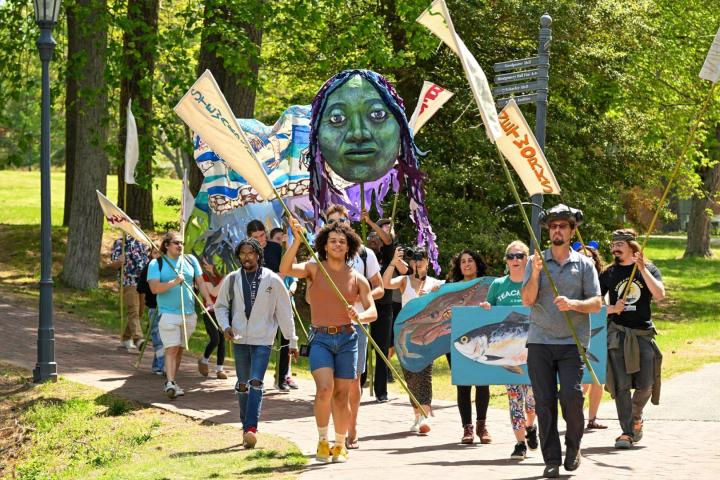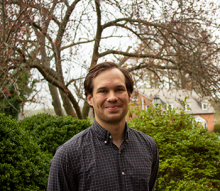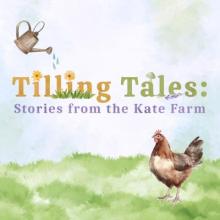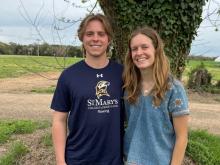
Co-produced by Environmental Studies' faculty Parisa Rinaldi and Barry Muchnick, The Climate Affect invited students, faculty and the campus community to join a network of events and collaborators aimed at elevating the climate dialogue through the arts.
This past fall, The Climate Affect examined resilience through the lens of plants. Guest artist lectures, workshops and interdisciplinary projects centered on native flowers planted at the Kate Chandler Campus Community Farm. Visiting artist Saya Behnam taught a native dye workshop at the farm and also gave a talk on her own creative process. Students in Environmental Studies courses researched these local flowers and created original art now displayed on a gallery wall in Kent Hall.
Building on this foundation, spring semester programming invited students across disciplines to engage with creating giant puppetry. The St. Mary’s College of Maryland Environmental Studies Department hosted guest artists Jan Burger and Emma Skurnick from Paperhand Puppet Project on campus from March 6-9 as part of the SMCM Climate Affect initiative. Working remotely and in person with Paperhand Puppets throughout the semester, students learned about the philosophy, art and design of giant puppets so that they could build their own and perform on Earth Day on April 22 at the Kate Chandler Campus Community Farm.
On Earth Day, students and faculty paraded these puppets throughout campus during a procession at community hour (11:30 a.m. – 1 p.m.). That same afternoon, from 4:30 – 6 p.m., the campus and wider community was invited to the Kate Chandler Campus Community Farm for a performance, written by students in Assistant Professor Parisa Rinaldi’s ENST 275: Affective Ecologies class, and directed by Assistant Professor of Theater, Dance and Performance Studies Diego Villada. Free food and a film screening will follow at the farm.
The student and faculty performers used the concept “Making the Invisible Visible” to center their work on the themes, systems and protagonists that are generally overlooked in modern-day imaginaries of nature-society relationships. The initiative leveraged the arts in climate dialogue to generate awe and wonder and to illuminate entangled relationships that will help us all reflect on our role in the present.
Beyond Earth Day, the puppets may be reused in a variety of settings, from admission open houses to local K-12 classrooms.



